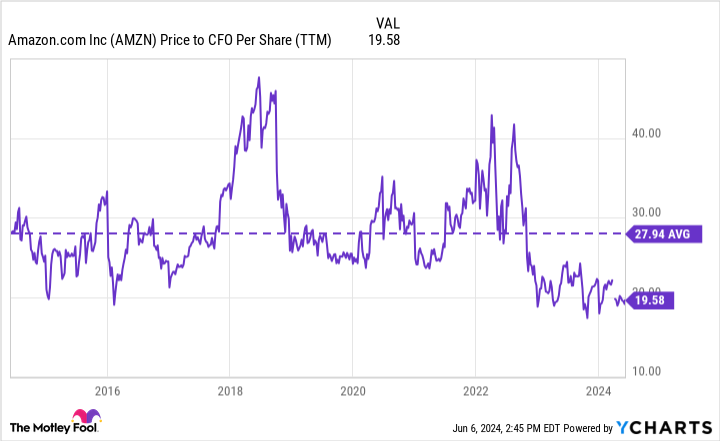Tossing these two tech winners into a diversified portfolio could smooth your path to a prosperous retirement.
High-quality companies with durable earnings growth can be wealth-building powerhouses that lift a portfolio over time. Most people who retire with high net worths have likely enjoyed stellar returns from their stock investments.
Importantly, investors shouldn’t bet too heavily on one horse — a diversified portfolio is critical to managing your risks. That said, there are some stocks that you can buy and hold for the next decade that could make a notable difference in the growth of your nest egg.
Here are two such names. Consider investing $10,000 into each of these stocks, and they could help you retire a millionaire.
Amazon will continue enjoying e-commerce and cloud tailwinds
What a business Amazon (AMZN -0.38%) is. The company started by selling books online in the mid-1990s and is today’s dominant e-commerce retailer, with a roughly 38% market share in the United States. Perhaps even more impressive is that Amazon followed up this whopper of an opening act with Amazon Web Services, which has become the world’s largest cloud infrastructure platform with a 31% global market share.
The company has been a very successful long-term investment. A $10,000 investment into Amazon stock in its early days would be worth over $18 million now. Of course, Amazon is now worth nearly $2 trillion, so there’s just no room in the global economy for it to increase in size and value by that magnitude again. However, the company does still have enough upside to justify a $10,000 investment today. Amazon’s bread-and-butter segments, e-commerce and cloud computing, have plenty of room to grow. E-commerce is still just 16% of retail in America. Meanwhile, the surge in artificial intelligence investments worldwide should mean big things for Amazon and other cloud platforms.
AMZN Price to CFO Per Share (TTM) data by YCharts. CFO = Cash flow from operating activities, (aka, operating cash flow).
A massive company like Amazon must also be trading at the right valuation in order to have the potential to generate additional big returns. Let’s check that box off. If you value Amazon based on its operating cash flow — in other words, the cash it generates from its normal business activities before investing in itself in pursuit of future growth — shares are about as cheap as they’ve been in the past decade (as the chart above shows). This winner is poised to keep winning, so don’t shy away from including it in your long-term investment plans.
Netflix has proven itself in the growing streaming industry
It’s not easy breaking new ground or creating new industries. Companies that try to are often beset by a lot of doubters, and Netflix (NFLX -1.09%) has definitely had its share of them over the years. However, the streaming pioneer is the global king of streaming today, with over 270 million paid subscriptions as of the end of the first quarter. Memberships grew 16% year over year in Q1, which shows there is still plenty of room for it to grow as people worldwide steadily shift from cable television to streaming.
And when a company becomes as large as Netflix has, there are plenty of tricks it can use to squeeze earnings growth out of the business. In addition to simply growing its subscriber base, Netflix can raise prices, crack down on password sharing (which has been hugely successful), and branch out into new content and media formats. The company has steadily waded into live sports content and is testing out video games now that technology has advanced enough for it to stream games through the cloud.
NFLX EPS LT Growth Estimates data by YCharts.
Netflix shares have handily outperformed the broader market for the past decade. But the company seems poised to deliver more years of strong earnings growth. Shares trade at 35 times earnings today, but analysts believe that its profits will grow at an annualized rate of more than 28% for the next three to five years. That should make the stock attractive for investors.
John Mackey, former CEO of Whole Foods Market, an Amazon subsidiary, is a member of The Motley Fool’s board of directors. Justin Pope has no position in any of the stocks mentioned. The Motley Fool has positions in and recommends Amazon and Netflix. The Motley Fool has a disclosure policy.








